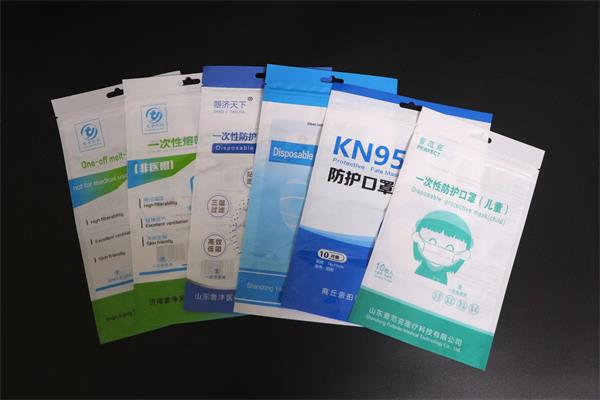濟(jì)南塑料袋 帶回家的菜和塑料包裝袋可以直接放進(jìn)冰箱嗎��?
來(lái)源:http:/// 日期:2022-02-09
把蔬菜和水果帶回家����,把它們和塑料包裝袋一起放在冰箱里��?我心里一直有些困惑����。各種熟食應(yīng)該用保鮮膜密封嗎�����?直接塞進(jìn)冰箱會(huì)滋生異味嗎����?把蔬菜放在塑料包裝袋里�����,直接放在冰箱里����,好嗎?在回答這個(gè)問(wèn)題之前��,讓我們考慮一下�,那些直接把塑料包裝袋放在冰箱里的蔬菜會(huì)很快壞掉,袋子里會(huì)有很多莫名的水漬嗎����?為什么?因?yàn)槭卟酥苯臃旁谒芰习b袋里是錯(cuò)誤的��!青島食品包裝塑料包裝袋小編分析原因如下:
Take vegetables and fruits home and put them in the fridge with plastic bags? I've been confused. Should all kinds of cooked food be sealed with plastic wrap? Will it breed peculiar smell if it is stuffed directly into the refrigerator? Put the vegetables in plastic bags and put them directly in the fridge, will you? Before answering this question, let's consider that those vegetables that put plastic bags directly in the refrigerator will soon break down. Will there be many inexplicable water stains in the bags? Why? Because it's wrong to put vegetables directly in plastic bags! The reasons for Qingdao plastic bag packaging are as follows:
增加濕度�,加速腐蝕�����。
Increase humidity and accelerate corrosion.
水果和蔬菜買回家后總是放在塑料包裝袋里�����,溫度很高�。如果直接放在冰箱里�,很快就會(huì)產(chǎn)生一層水蒸氣。濕度增加后�����,容易滋生異味��,加速食物變質(zhì)腐爛�����。因此����,購(gòu)買的蔬菜應(yīng)先打開塑料包裝袋口�����,或從塑料包裝袋中取出,并在室溫下通風(fēng)干燥�。必要的冷凍食品應(yīng)用塑料薄膜密封,因?yàn)樗芰媳∧さ奶厥夤に嚭驮暇哂辛己玫耐笟庑院捅ur性��。
Fruits and vegetables are always put in plastic bags after they are bought home. The temperature is very high. If you put it directly in the refrigerator, it will soon produce a layer of water vapor. After the humidity increases, it is easy to breed peculiar smell and accelerate the deterioration of food. Therefore, the vegetables purchased should first open the mouth of the plastic packaging bag, or take them out of the plastic packaging bag, and ventilate and dry them at room temperature. The necessary frozen food should be sealed with plastic film, because the special process and raw materials of plastic film have good air permeability and freshness.
濟(jì)南塑料袋

缺乏通風(fēng)��,消耗營(yíng)養(yǎng)����。
Lack of ventilation consumes nutrition.
在缺氧的情況下,蔬菜會(huì)消耗大量的營(yíng)養(yǎng)���,并產(chǎn)生乙醛和酒精對(duì)細(xì)胞有毒�����。因此���,在儲(chǔ)存過(guò)程中務(wù)必注意通風(fēng),以確保供氧����。
In the case of hypoxia, vegetables will consume a lot of nutrients and produce acetaldehyde and alcohol, which are toxic to cells. Therefore, pay attention to ventilation during storage to ensure oxygen supply.
3.污染物帶入��,交叉污染��。
3. Bring in pollutants and cross pollution.
塑料包裝袋在回來(lái)的路上會(huì)與空氣接觸����,有時(shí)會(huì)粘在灰塵和土壤上����。直接放入干凈的冰箱會(huì)造成污染物的帶入�����,從而影響其他食物的健康���。因此,記住把雜七雜八的東西塞進(jìn)冰箱里�����。一般來(lái)說(shuō)�����,蔬菜不應(yīng)該在清洗后放入冰箱��,因?yàn)檫^(guò)于潮濕的環(huán)境是污染物滋生的溫床����。將蔬菜清洗后放入冰箱,容易增加冰箱內(nèi)的濕度��,為污染物的繁殖創(chuàng)造條件��。此外�����,一般果蔬表面會(huì)有一層蠟�,可以保護(hù)其免受微生物的侵害。清洗會(huì)損壞����,使污染物更容易進(jìn)入果蔬。
On the way back, plastic bags will come into contact with the air and sometimes stick to dust and soil. Putting it directly into a clean refrigerator will bring in pollutants, which will affect the health of other foods. So remember to stuff all sorts of things into the fridge. Generally speaking, vegetables should not be put into the refrigerator after cleaning, because too humid environment is a hotbed for pollutants. Putting vegetables into the refrigerator after cleaning is easy to increase the humidity in the refrigerator and create conditions for the reproduction of pollutants. In addition, there is a layer of wax on the surface of fruits and vegetables, which can protect them from microorganisms. Cleaning will damage and make it easier for pollutants to enter fruits and vegetables.
 18764138233
18764138233
 18764138233
18764138233

 18764138233
18764138233
